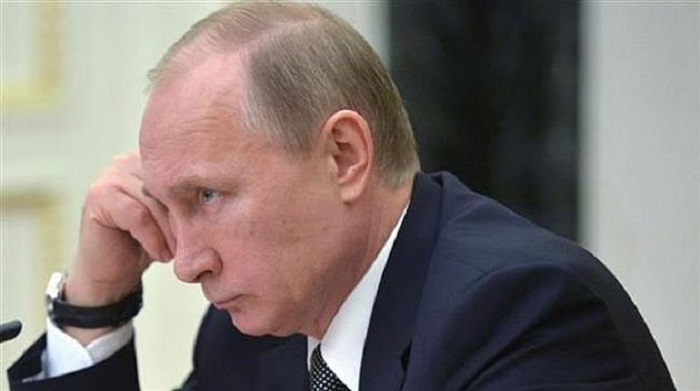Russia Ready for Multi-Polar International System

After the tough rivalry between Russia and the West over Crimea in 2014 ended with a Russian victory, Western states made efforts to isolate Russia by imposing sanctions. But they did not know that the Northern Bear had woken up from hibernation and could not easily be chained. With tenacity on the Ukraine issue, Putin bolstered Russian national pride and attracted support for his administration. He is now trying to play an active role in the Middle East and Africa in order to extend his sphere of influence and to prevent the US’ further progress. Thus, we are witnessing Russia’s active role in the Syrian crisis.
Russia, the most significant ally of Bashar Assad, tries to support Syrian airbases through its naval facilities in the Syrian port of Tartus. Russia has stood up against the Western countries’ determination to remove Assad, and has made them accept the Syrian people’s vote. To strengthen its position, Russia has held extensive consultations. In this regard, in early September, officials of some countries including Egypt, Jordan and the Emirates visited Moscow to discuss the Syrian crisis. In addition to strengthening bilateral relations through these diplomatic visits, Russia has tried to gain the support of Arab countries by signing economic contracts and through military aids. Russia has managed to change the position of strategically important Egypt on the Syrian crisis.
This of course is not the end of Russia’s efforts for more influence in Africa. Russian mediation in the Sudan crisis and trilateral meetings between the foreign ministers of Sudan, South Sudan and Russia on September 10, are among Moscow’s trans-regional measures to act as a great power. Relations between Sudan and South Sudan have been tense over various issues since the latter’s independence. The most important issue that has intensified tensions between the two countries has been the subject of borders and the division of oil resources. About three-quarters of Sudan's oil reserves are in the southern part of the country, but the oil pipeline passes through northern Sudan. In such a situation, Russia’s success in helping Sudan resolve this four-year conflict increases its credibility in North Africa.
Selling armaments to Afghanistan to fight against ISIS and terrorism is another of Russia’s moves to support countries in the region against upcoming threats. Russia is trying to show that in such a global village other great powers aside from the US are able to help resolve crises and global issues.
The important point is that the formation of such an international competitive atmosphere could provide both opportunities and threats for the Islamic Republic of Iran. On the one hand, the replacement of the US-led uni-polar order with a multi-polar pluralistic one opens a space for the active participation of regional powers including Iran, and bolsters its ability to negotiate. The containment of the US and its warmongering policies and threats aimed to achieve its goals and change other countries’ policies is another positive consequence of the new multipolar system which Iran could benefit from significantly.
However, one should be aware that the bipolar system has been abolished and regional cooperation and balanced relations with all powerful countries in the multi-polar system could better serve national interests for all countries.
Therefore, benefiting from the new dominant international arrangement, the diplomatic administration of Iran is improving Iran’s relations with all effective powers aligned with Iran’s interests in order to achieve national goals with regards to the three tenets of its foreign policy: dignity, wisdom, and expedience.
Translated by: Parisa Farhadi

